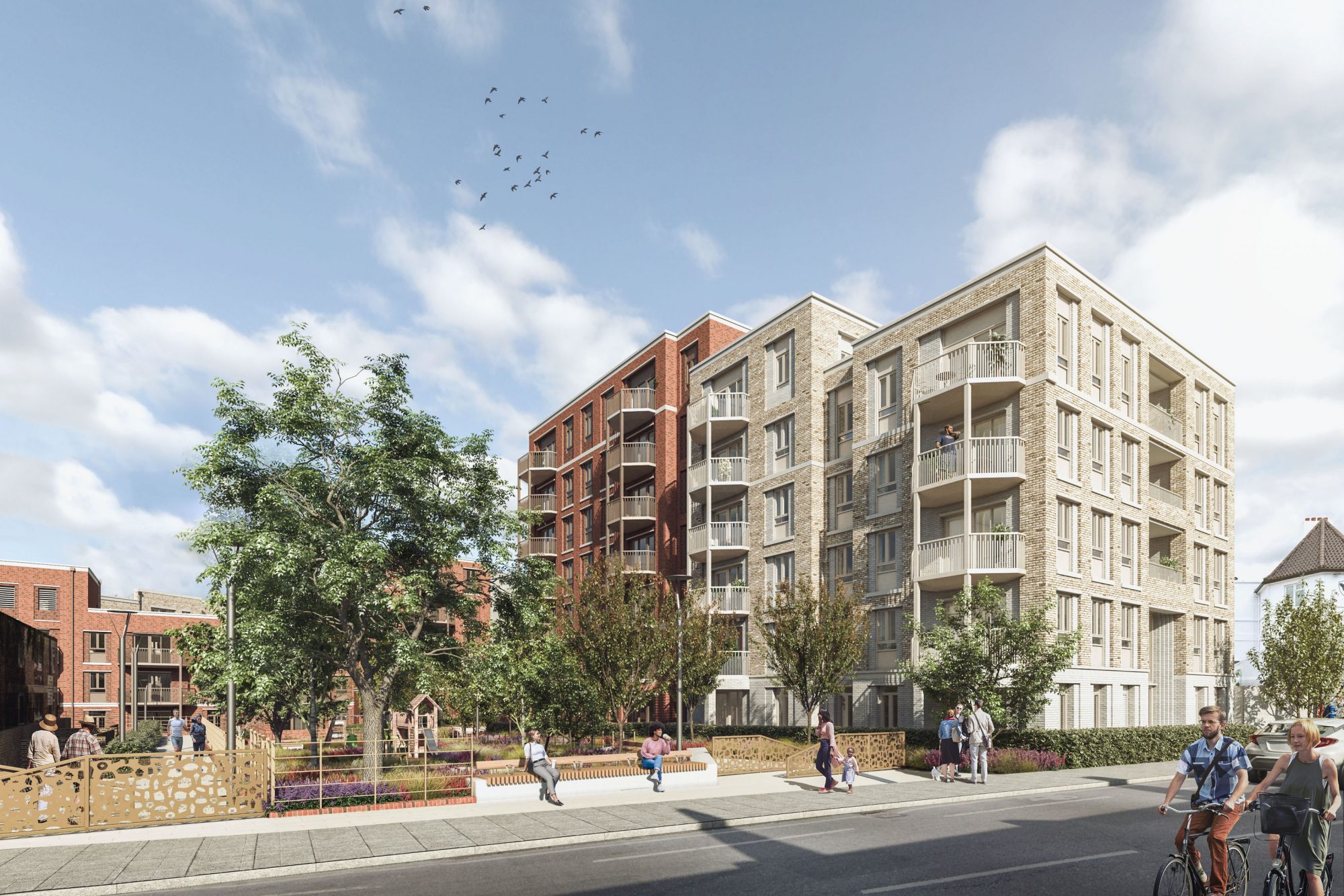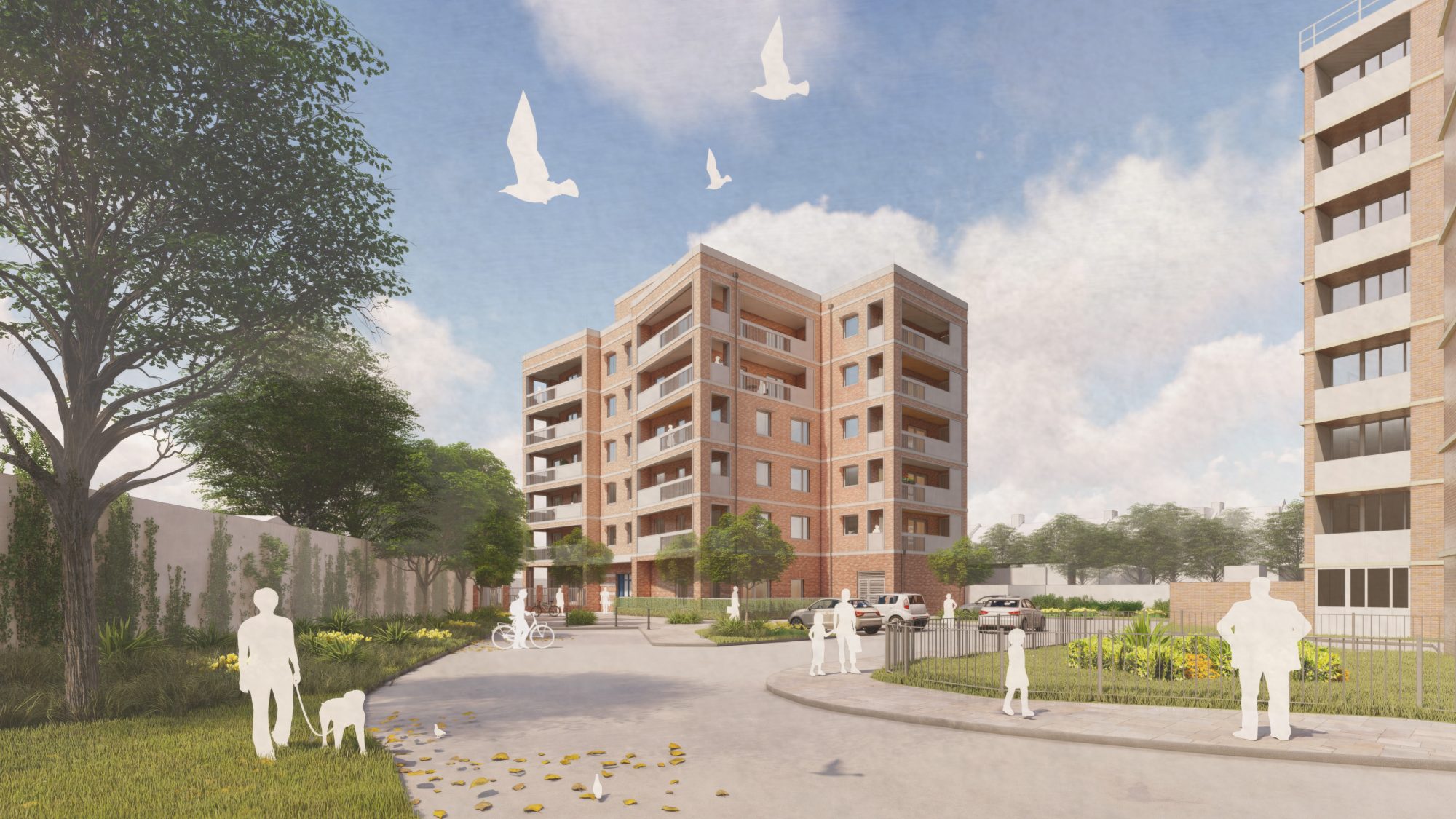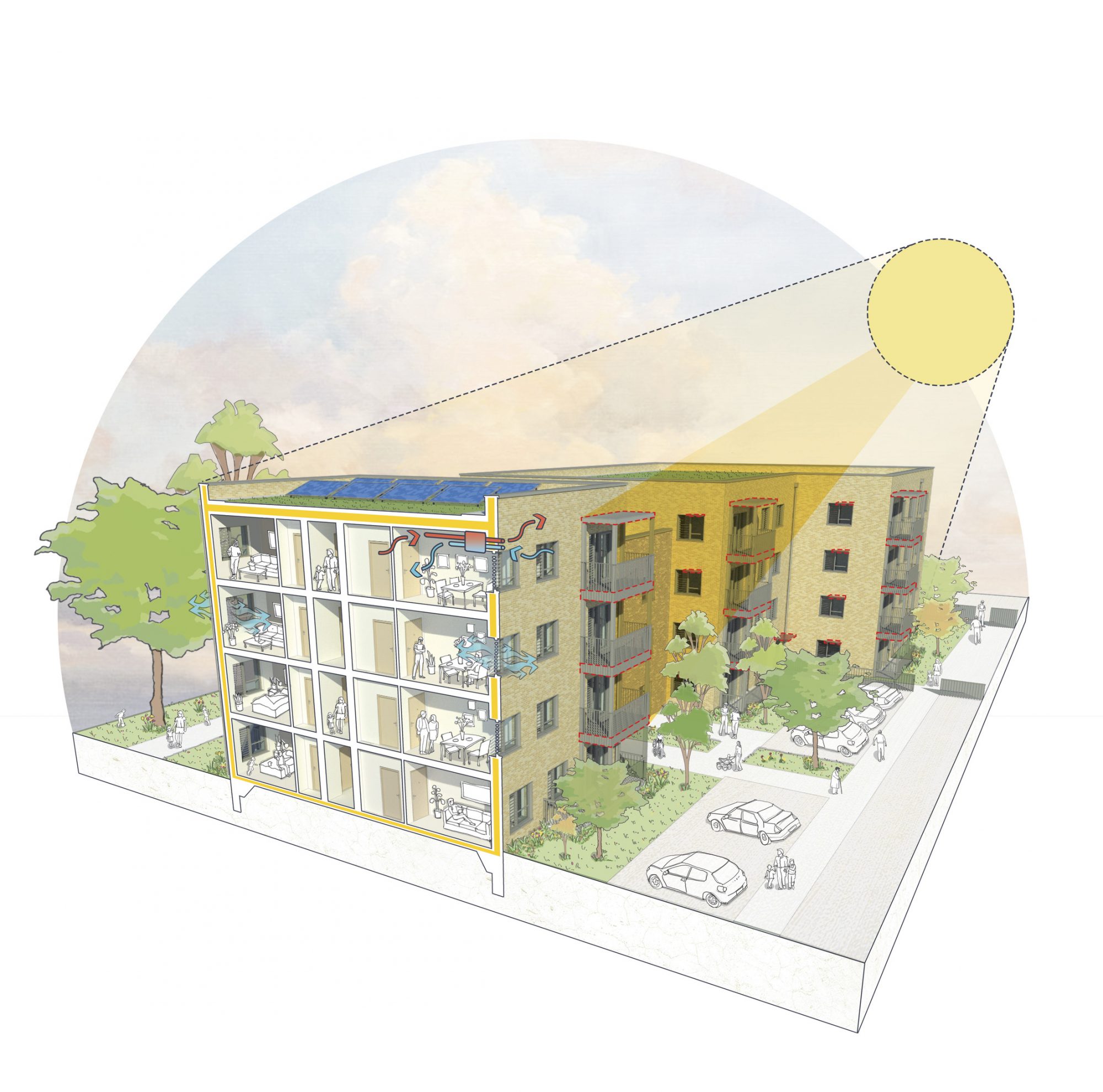26 - 05 - 2022
Featuring BPTW’s Architectural Partner Neill Campbell for The Housing Forum’s Council Conference.
Councils face many challenges when building new homes, often created by a long list of competing priorities such as cost and viability, planning requirements, the need to maximise density and resource pressures. However, these challenges should not limit the ability to deliver high quality, sustainable homes. For The Housing Forum’s Council Conference this May, BPTW Architectural Partner Neill Campbell presented the lasting benefits of net zero and Passive House in affordable residential design and how challenges can be transformed into opportunities.
You can watch their presentation below:
With a continued focus on local authorities’ interests, their presentation commenced with an overview of the current environmental context, such as rising energy prices, and a comparison of how current and future building legislation counteracts this. Passive House and net zero carbon principles offer well-developed design methodologies for minimising operational carbon without reliance on wider infrastructural improvements.

Regardless of the benefits, Passive House has seen a slow uptake in the UK due to industry myths. Passive House Certified Designer Dido Graham focused on addressing myths and looking at the elephant in the room: the delivery costs associated with Passive House projects. Contemporary research indicates that the cost difference of Passive House is minimal, especially in comparison to the added benefits in occupation, embedding it in the process at the brief stage and that any cost difference with traditional construction continues to reduce as Passive House becomes more commonplace.
BPTW has used a Passive House methodology on many affordable housing projects for local authorities in and outside London. Using three specific council case studies, Neill Campbell highlighted how well-designed Passive House schemes, properly planned and considered from the outset, can mitigate, and even deliver better solutions to ‘typical’ challenges and conflicts without compromising on the desired sustainability outcomes. He noted how design development can be improved by using a Passive House approach and how in several developments this methodology has even mitigated the effect of site constraints. For instance, at Hathaway Crescent, a residential development of 72 homes for Newham Council, our fabric-first design approach and focus on building orientation reduced the impact of noise pollution.

Key Takeaways
BPTW’s presentation concluded with five takeaways describing how Passive House can create sustainable homes that are great to live in, cheaper to run and ultimately better for the environment.
- Be clear with the project objective from the outset. Passive House cannot be easily added later on without incurring additional costs and project management inefficiencies.
- Make sustainability central to the design and not an add-on.
- Passive House creates good quality living environments. Early collaboration with sustainability consultants and Passive House can bring efficiencies throughout the development process, including during construction and occupation.
- Each site has compromises, challenges and opportunities. These are best tackled directly early on by the design team and Passive House can offer a good methodology for addressing them.
- Ultimately, we are designing homes for the long term. Passive House creates homes that are comfortable, healthy and economical to run.

BPTW is an active participant of The Housing Forum and its Partners and Directors have contributed to many talks and events to raise the quality of housing in England. You can read more about their contributions to The Housing Forum, such as BPTW’s work for The Housing Forum’s Councils Network, on our Insights page.
Neill Campbell is an Architectural Partner at BPTW. A specialist in residential design and consultation, he has overseen the design and delivery of numerous successful new build residential-led schemes from infill programmes to large-scale regeneration and mixed-use developments. Neill oversees much of BPTW’s work in the local authority housebuilding sector and is currently working with many councils to bring forward their housing development programmes, supporting them to respond to the climate emergency through the design and delivery of homes to achieve net zero and Passive House standards.


